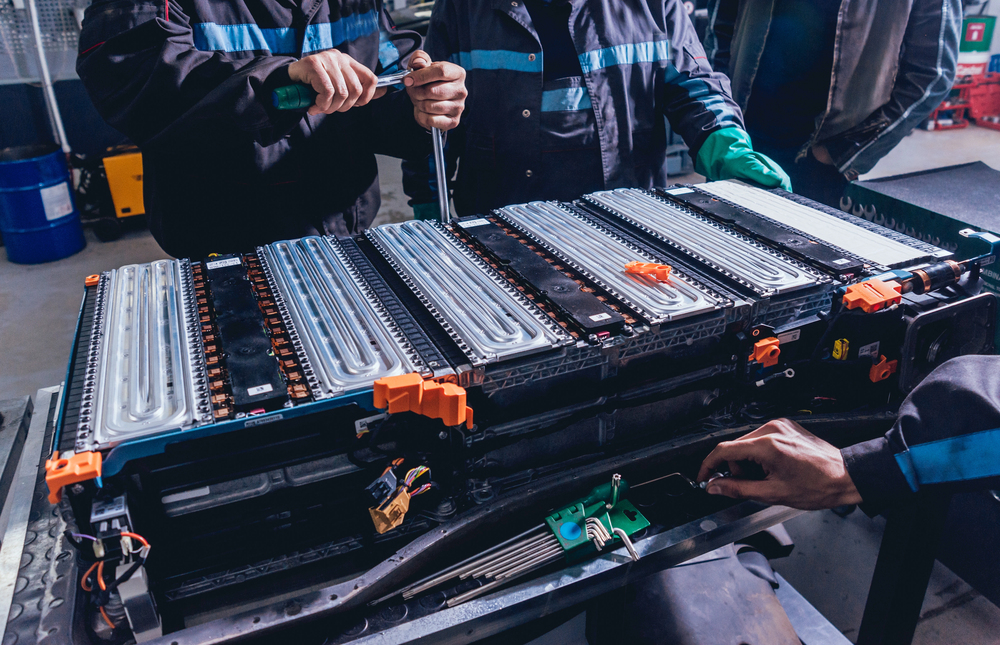Investing in Canadian-certified EV diagnostic equipment
Share
Share

Canada’s electric vehicle market is trending upward as the nation aims to achieve zero emissions. With more consumers purchasing new EVs, the need for specialized diagnostics and maintenance is also increasing. Small to mid-sized automotive shops must adapt to the changes to stay competitive.
This means they must adopt Canadian-certified EV diagnostic equipment to meet customer needs and adhere to regulatory compliance. Of course, knowing the financial implications and possible returns on investment (ROI) as they navigate this particular market is critical.
Regardless of size, automotive service providers must understand Canadian certification for EV diagnostic tools. The equipment should meet national safety criteria set by organizations like the Canadian Standards Association (CSA) and Underwriters Laboratories of Canada. Some more notable CSA codes include:
These codes and similar certifications ensure EV manufacturers and the automotive sector follow federal and provincial regulatory requirements. Small and midsized auto shops can avoid liability for accidents and equipment malfunctions when using Canadian-certified tools. Committing to safety and professionalism also helps build consumer trust.
Experts predict the EV diagnostic tools market will rise at a 12.8 per cent compound annual rate from 2025 to 2035. A greater number of sales, tightening emissions policies and the increasing sophistication of EV components amplify the need for cutting-edge diagnostic instruments.
The initial costs of EV diagnostic devices remain a barrier for repair shops. Although basic scan tool prices have decreased, the latest models suited for EVs and other high-tech vehicles remain unattainable. Most small to mid-sized auto centers cannot afford these technologies, making it harder to service EVs. Tool manufacturers also face increasing pressure to keep costs low, but their development is expensive, causing many to second-guess investing in research and development in this growing sector.
The ongoing expenses of Canadian-certified EV diagnostic equipment go beyond the actual purchase. Auto shops must regularly update the software and recalibrate the devices to make them compatible with new EV models and uphold safety and compliance standards. Staff training is another recurring expense to ensure technicians stay current with the latest maintenance skills.
Canada and consumers benefit most as the nation’s EV market expands, setting it up to achieve its net-zero goals while consumers save money on fuel. People pay about $1 less at EV charging stations than at the pumps — about CA$1.37 — creating significant savings for those who drive regularly.
Investing in Canadian-certified EV diagnostic tools — including battery health assessments, charging functionality and high-voltage system integrity — could create financial opportunities for small to mid-sized auto shops. According to one report, 73 per cent of EV owners think dealership technicians have higher qualifications for serving their vehicles. Independent auto shops can reap ROI benefits and boost service revenue with the proper EV repair tools and training.
EVs run on 100 per cent clean power and use 87 per cent to 91 per cent of their engine energy, unlike conventional cars, which use only 16 per cent to 25 per cent. For this reason, countries depend on the widespread adoption of EVs to reach their climate targets.
Canadian automotive shops that invest in certified EV diagnostic instruments are a part of this green transition. To help fund these ventures, they can look to federal programs and initiatives like the Zero Emission Vehicle Infrastructure Program, which provides grants for charging infrastructure and training.
Individual provinces might also deliver tax credits and subsidies to auto repair companies. Shop owners should inquire about eligibility for funding opportunities by consulting government departments, industry associations and local offices.
EV diagnostic equipment is costly, so automotive service and repair shops should evaluate their facility’s readiness. The first step is to assess whether they have the necessary electrical setup, safety protocol and space to initiate EV services. Additionally, while EV diagnostic equipment helps determine vehicular failures and malfunctions, shops must employ technicians with sufficient training and upskilling to manage these high-voltage systems properly and safely.
Shops should encourage or pay for employees to enroll in a zero-emission vehicle technician program to learn how to repair and maintain EVs in Canada. Partnering with original equipment manufacturers and other third-party providers also delivers technical support, software upgrades and specialized learning to advance their services and market in the future.
Small to mid-sized auto shops that invest in Canadian-certified diagnostic equipment gain a competitive advantage in the repair market. Advanced tools enable them to service the latest zero-emission vehicles and broaden their customer base.
Devin Partida is the editor-in-chief of ReHack.com and a freelance writer. Devin covers business technology, Fintech and auto tech.
Image credit: Depositphotos.com
Leave a Reply